Animals
-
 Animals
AnimalsRoadkill : Learning from the dead
Roadkill can be more than a smooshed-up carcass. Scientists study these highway casualties to learn more about wildlife and their environments.
-
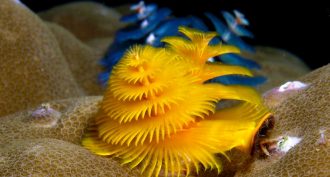 Animals
AnimalsPicture This: Christmas tree worms
The tops of Christmas tree worms look like brightly colored plants. But they are really boneless marine animals with eyes that can breathe and gills that can see.
By Susan Milius -
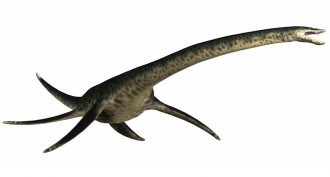 Animals
AnimalsPicture This: Plesiosaurs swam like penguins
A computer model suggests plesiosaurs — ancient marine reptiles — swam like penguins, using front flippers for power and back flippers for steering.
-
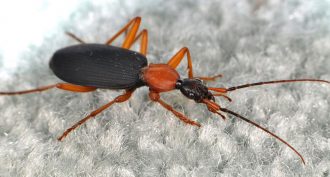 Animals
AnimalsBugs that call your house home
A survey of North Carolina homes found hundreds of species of insects, arachnids and other arthropods. Most, though, were harmless.
-
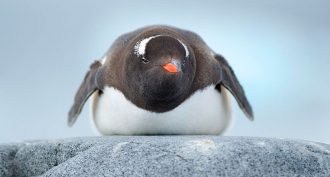 Animals
AnimalsWhy some penguin feathers never freeze
Oil and tiny pores prevent the feathers on some penguins from freezing. The discovery could inspire new ways to keep ice off of airplane wings.
By Andrew Grant -
 Animals
AnimalsUsing dolphins to find unknown ocean pollutants
Long-lasting pollutants may threaten marine mammals and human health. To find those pollutants, scientists are sampling blubber, then running the fatty material through new types of tests.
By Liz Devitt -
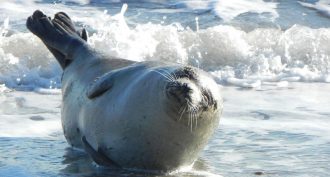 Animals
AnimalsSeals: Catching a ‘corkscrew’ killer
Spiral wounds on dead seals led experts to blame boat propellers. But cameras exposed another source: One seal species was killing another.
By Liz Devitt -
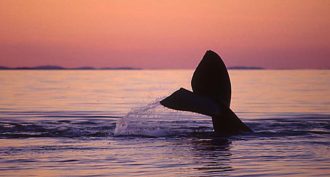 Animals
AnimalsWhat a drag! Fishing gear’s effects on whales
Many whales become entangled in the gear that fishing boats use to catch fish and shellfish. Such debris can have dire impacts on the big mammals.
By Ilima Loomis -
 Animals
AnimalsFaking out whales
A false “dinner bell” can safely distract hungry whales from stealing fish from commercial fishing lines, new research shows.
By Liz Devitt -
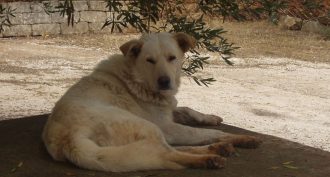 Animals
AnimalsDo dogs have a sense of self?
Dogs don’t know their own reflections in a mirror, but they do recognize themselves from the scent of their own urine, a new study finds.
-
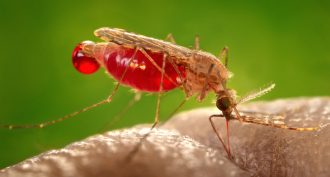 Animals
AnimalsGene editing swats at mosquitoes
A new genetic technique can render insects that spread malaria unable to reproduce.
-
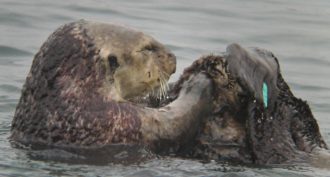 Animals
AnimalsSome otters wear red algae
Some sea otters in California sport coats of red algae. A new study finds the species most likely is a non-native organism from half a world away.